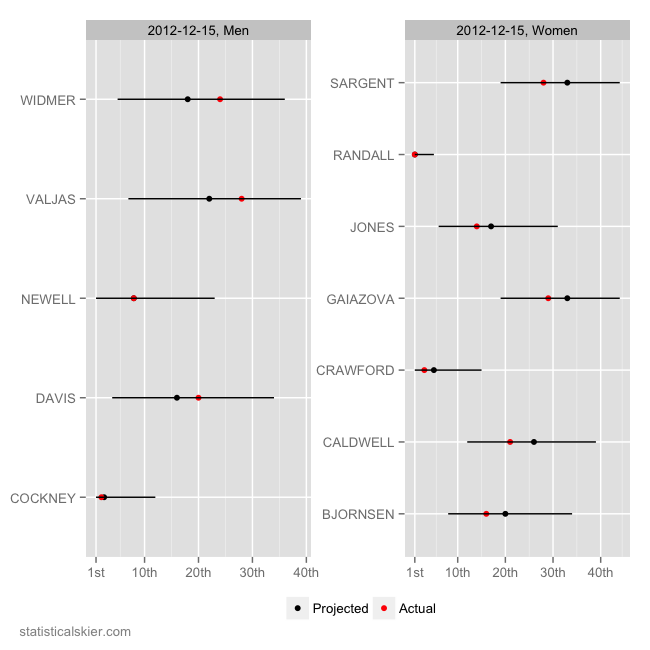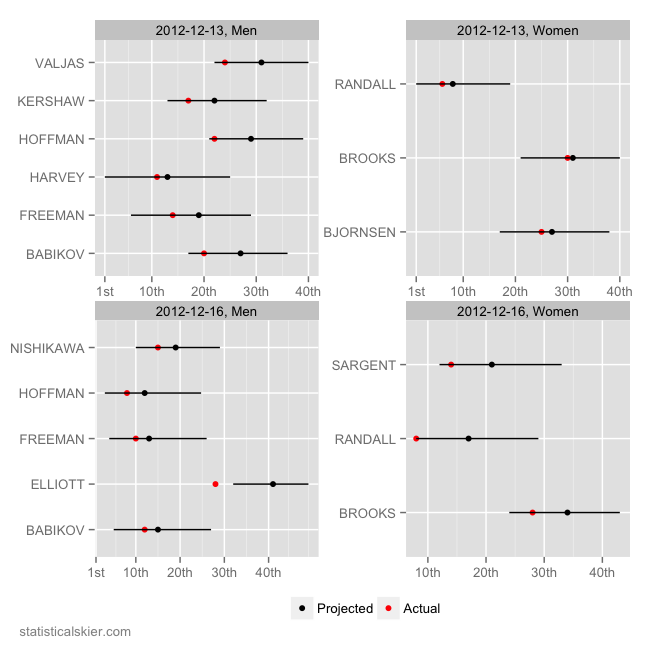Anytime the World Cup hits North America, the issue of weaker fields always comes up. Frequently, even when American or Canadian skiers do seemingly very well here, there’s always that nagging feeling about how that result would translate to a more “complete” World Cup field in Europe.
Overall, I think the US results in particular were strong enough that I think we should be comfortable with them on their own. But it’s still an interesting question, so let’s see what we can cook up.
My general approach for this kind of problem is to compare people to a specific collection of other skiers. So let’s walk through how this will work using Ida Sargent’s 14th on Sunday as an example.
Consider all the skiers in Sunday’s pursuit who have done at least 3 mass start or pursuit style races over the past year or so. Suppose we calculate Sargent’s percent back relative to these athletes. Now, armed with those percent back values, we can go back and look at where that would have placed Sargent in each of the similar World Cup races the other competitors had done.
Then we can take the median as a sort of prediction for how Sargent’s effort would be expected to play out in a regular field.
So let’s take a look at the results for the Canmore distance races:
These are all the North American top 30 results from the two distance races. Each skier’s actual result is in red, and their projected result in a “full” field is the black dot. The ranges plotted along with the projected results are provided to give you a sense of how variable even “full” World Cup fields can be, i.e. considerably.
Note that all of the projected results are worse than the actual results, which is what we’d expect from a weaker field. But in many cases, they are not worse by very much at all.
For instance, the women’s results from Thursday were probably right on the nose of where they would have landed in a fuller field. The rest would probably only have been moderately to slightly worse worse, with the possible exception of Elliott’s race on Sunday, probably because the 20th-40th range is the area most likely to get more competitive in a stronger field.
I did the same thing with the sprint race, treating the qualification round the same way I would a distance race:
 Just keep in mind that this refers only to qualification results. Notice anything interesting? The men’s qualification results are generally projected to be slightly better in a “real” World Cup field.
Just keep in mind that this refers only to qualification results. Notice anything interesting? The men’s qualification results are generally projected to be slightly better in a “real” World Cup field.

Post a Comment